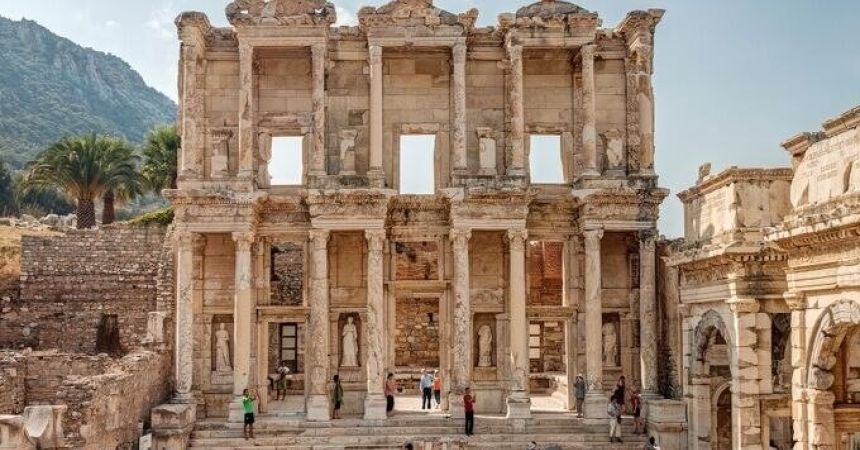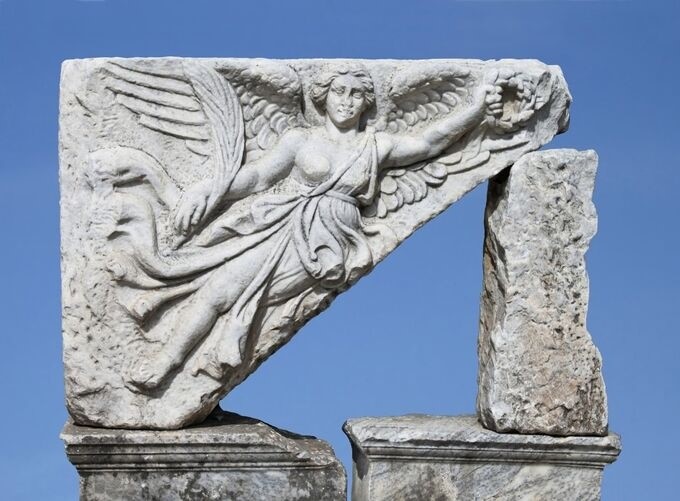
Visit Ephesus, Turkey’s Historic Treasure
Ephesus, one of Turkey’s most remarkable archaeological sites, offers a fascinating glimpse into ancient civilizations. Nestled on the western coast of Turkey, near the modern city of Selçuk, Ephesus was once a bustling metropolis and a significant center of culture, commerce, and religion in the ancient world. Today, it stands as a testament to the grandeur of the Roman Empire and offers visitors an unparalleled journey through time. This comprehensive guide will explore the history, significance, and Tours of Ephesus, providing you with an in-depth understanding of this ancient marvel.
Introduction to Ephesus, Turkey
Historical Overview
Ephesus, founded in the 10th century BCE by the Ionian Greeks, is renowned for its historical significance and archaeological wonders. It flourished under the Roman Empire and was a major port city on the Aegean Sea, serving as a hub of commerce and culture. The city was dedicated to Artemis, the Greek goddess of fertility and the hunt, and it became known for the Temple of Artemis, one of the Seven Wonders of the Ancient World.
Location and Accessibility
Ephesus is located near the modern-day town of Selçuk, in the Izmir Province of Turkey. It is approximately 50 kilometers south of Izmir and can be easily reached by car, bus, or train. The site is a popular destination for tourists and history enthusiasts, drawing visitors from around the world.
Historical Significance of Ephesus
Ancient Ephesus: From Greek Settlement to Roman Power
Ephesus began as a Greek settlement in the 10th century BCE, but its prominence grew significantly under Roman rule. The city became a major center of trade and culture, benefiting from its strategic location on the Aegean coast. The Roman Empire invested heavily in the city, constructing impressive buildings and infrastructure that showcased its wealth and influence.
Religious Importance
Ephesus was a key religious center, primarily dedicated to Artemis. The Temple of Artemis, one of the Seven Wonders of the Ancient World, was a major pilgrimage site and a symbol of the city’s wealth and piety. The city also played a significant role in early Christianity, with the Apostle Paul writing several letters to the Ephesians and spending time in the city during his missionary journeys.
The Decline and Rediscovery
Ephesus experienced a decline after the Roman Empire’s fall, eventually being abandoned due to shifting trade routes and seismic activity. The city lay buried under layers of soil and debris for centuries until archaeological excavations began in the 19th century, revealing its majestic ruins to the world.
Major Attractions in Ephesus
The Great Theatre
One of the most iconic landmarks of Ephesus, the Great Theatre, is an impressive structure capable of seating up to 25,000 spectators. Built during the Roman period, the theatre was used for various performances, including dramas and gladiatorial games. Its well-preserved acoustics and intricate design make it a must-see attraction.
The Library of Celsus
The Library of Celsus, a marvel of Roman architecture, was built in the early 2nd century CE as a mausoleum for the Roman Senator Tiberius Julius Celsus. The library was a prominent cultural and intellectual center, housing thousands of scrolls and serving as a symbol of Ephesus’s scholarly prestige. Its facade, adorned with intricate carvings, is one of the most photographed sites in Ephesus.
The Temple of Artemis
Although only remnants of the Temple of Artemis remain, it was once one of the Seven Wonders of the Ancient World. The temple was a grand structure dedicated to the goddess Artemis and was renowned for its massive size and ornate decorations. Visitors can explore the remains and gain insight into the temple’s historical and religious significance.
The Terrace Houses
The Terrace Houses, also known as the “Houses of the Rich,” offer a glimpse into the luxurious lifestyle of Ephesus’s wealthy inhabitants. These well-preserved houses feature intricate mosaics, frescoes, and advanced plumbing systems, showcasing the city’s architectural sophistication and domestic life.
The Odeon in Ephesus
The Odeon, a smaller theatre located near the Great Theatre, was used for musical performances and political gatherings. Its seating capacity of around 1,500 people and its acoustic design reflect its importance as a venue for public events and entertainment.
The Roman Baths
The Roman Baths of Ephesus were an essential part of daily life in the city. These baths, equipped with sophisticated heating systems and intricate mosaics, were used for relaxation and socialization. The remains of the baths provide insight into the social and cultural practices of ancient Ephesians.
The Harbour Gymnasium
The Harbour Gymnasium, located near the ancient harbor, was a complex dedicated to physical exercise and athletic competitions. The site includes remnants of gymnasiums, baths, and palaestrae (wrestling schools), highlighting the importance of physical fitness in ancient Ephesus.
The Arcadian Way
The Arcadian Way, a grand boulevard that connected the city to the harbor, was lined with impressive columns and monuments. This ancient road served as a major thoroughfare for trade and processions, and its remains offer a glimpse into the city’s grandeur and urban planning.

The Church of Mary
The Church of Mary, located within the ruins of Ephesus, was an important early Christian church and one of the earliest places of Christian worship in the city. It is believed to be the site where the Council of Ephesus was held in 431 CE, making it a significant location in Christian history.
Visiting Ephesus: Practical Tips
Best Time to Visit Ephesus
The best time to visit Ephesus is during the spring (April to June) or fall (September to October) when the weather is mild and comfortable. The summer months can be hot and crowded, while the winter months may be rainy and less favorable for sightseeing.
Entry Fees and Tickets
Visitors can purchase tickets at the entrance of the archaeological site. It is advisable to check for updated prices and opening hours before visiting. Consider purchasing a combination ticket if you plan to visit other nearby sites, such as the House of the Virgin Mary or the Ephesus Museum.
Guided Tours of Ephesus
Taking a guided tour to Ephesus can enhance your experience by providing detailed historical and cultural context. Many tours offer expert guides who can share fascinating insights and stories about the ruins and their significance.
What to Wear and Bring
Wear comfortable walking shoes, as the site covers a large area with uneven terrain. Bring a hat, sunscreen, and plenty of water to stay hydrated. A camera or smartphone is essential for capturing the site’s stunning views and architectural details.
Respect the Site
Preserve the integrity of the ruins by avoiding climbing on structures or touching fragile artifacts. Follow the guidelines provided by the site’s management and be respectful of other visitors.
Exploring Beyond Ephesus
The House of the Virgin Mary
Located a short drive from Ephesus, the House of the Virgin Mary is a revered pilgrimage site believed to be the final home of Mary, the mother of Jesus. The small stone house, nestled in the mountains, is a place of spiritual significance and offers a peaceful atmosphere for reflection.
The Ephesus Museum
The Ephesus Museum, located in Selçuk, houses a vast collection of artifacts from the ancient city of Ephesus. The museum’s exhibits include statues, coins, and everyday items, providing additional context and detail about life in ancient Ephesus.
Sirince Village
Sirince Village, situated nearby, is a charming traditional village known for its well-preserved Ottoman architecture and local wine production. The village offers a glimpse into rural Turkish life and is a great place to experience traditional cuisine and crafts.
Pamukkale
Pamukkale day Tour, a natural wonder located a few hours’ drive from Ephesus, is famous for its stunning white travertine terraces formed by mineral-rich hot springs. The site also includes the ancient city of Hierapolis, with its well-preserved ruins and thermal baths.
Visiting Ephesus: Explore Ancient Wonders in Turkey
Ephesus, with its extraordinary ruins and historical significance, offers a captivating journey through time. As you explore the ancient city’s grand structures, temples, and streets, you’ll gain a deeper appreciation for the rich cultural heritage and architectural achievements of the past. From the iconic Library of Celsus to the majestic Great Theatre, Ephesus stands as a testament to the enduring legacy of ancient civilizations.



